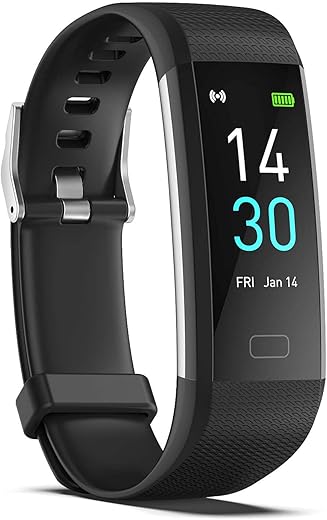
Fitness trackers for running
Once regarded as the exclusive gadget of tech enthusiasts and elite athletes, fitness trackers for running have charged into the mainstream market with remarkable momentum, now accounting for millions of users worldwide who rely on them to monitor their runs. These sleek, wearable devices are equipped with sensors and technology that measure data such as distance, pace, heart rate, calories burned, and even sleep quality, catering to those intent on optimizing their fitness routines.
The origin of fitness trackers can be traced back to the early pedometers of the 1960s, which merely counted steps based on the movement of the hips. Technology rapidly evolved, and by the late 2000s, more sophisticated devices emerged, coupling the simple step-counting feature with heart rate monitors and GPS functionality. These advancements allowed runners to track their routes, analyze their performance, and set personalized goals. Nowadays, the significance of a fitness tracker for runners lies not just in its ability to track activity, but also in its role as a motivator and a virtual coach, providing feedback and encouraging users to maintain or increase their physical activity levels.
Remarkably, statistics indicate that regular use of a fitness tracker can lead to a 30% increase in physical activity among users, underscoring the potential for these devices to greatly enhance an individual’s commitment to running and overall health. Considering the growing popularity of personal fitness, especially running, this figure highlights the substantial impact that fitness trackers have had on promoting a more active lifestyle.
The appeal of fitness trackers continues to grow as they become more integrated with daily life. Many devices can now sync with smartphones, allowing users to receive notifications, control music, and even make payments, all from their wrists. This multifaceted approach ensures that the fitness tracker is not just a tool for exercise, but also a constant companion that supports a wide array of lifestyle needs, effectively resonating with a demographic far beyond the habitual runner.
“`html
What Are the Best Fitness Trackers for Runners in 2023?
“`
When it comes to enhancing your running regime, the right fitness tracker can be a game-changer. Fitness trackers for running are specially designed wearable devices that monitor various metrics such as distance covered, pace, calories burned, heart rate, and even your route via GPS. They offer tailored features to help runners track their progress, set goals, and improve their performance. With advanced sensors and software, these trackers provide insights that can guide training, prevent overtraining, and even suggest recovery times. Whether you’re a seasoned marathoner or a casual jogger, the right fitness tracker can be your virtual coach and motivator. Stay tuned as we dive deeper into the world of running tech, where we examine the latest models, compare their features, and help you find the ideal fitness companion for your running journey.
Features to Look for in Fitness Trackers for Running
Running enthusiasts who are keen on monitoring their progress and enhancing their performance can benefit significantly from fitness trackers designed specifically for their sport. When choosing fitness trackers for running, there are several features that one must consider to ensure that the device is useful and enriches the running experience.
- GPS Functionality: A built-in GPS is crucial for runners as it provides real-time data on pace, distance, and route. It allows you to track your runs accurately and see improvements over time.
- Heart Rate Monitoring: Continuous heart rate tracking helps in gauging the intensity of your workouts and ensuring that you’re training within your target heart rate zones.
- Battery Life: Runners require a fitness tracker with a battery life that can sustain long runs without the need for frequent charging.
- Water Resistance: Since running can often expose you to the elements, a water-resistant tracker is beneficial for dealing with sweat, rain, or any weather conditions.
- Step Counting and Cadence: The ability to measure steps and cadence can help improve form and efficiency, which is especially useful for competitive runners focused on pacing.
- Advanced Metrics: Serious runners may look for advanced metrics such as VO2 max estimates, recovery time advice, and race predictor times to further enhance training.
- User Interface and App Integration: A user-friendly interface on both the tracker and its accompanying app is essential for easy navigation and data analysis.
Popular Fitness Trackers for Running
Several fitness trackers have earned high marks from runners worldwide, each offering a mix of the features mentioned above. Below are a few popular options:
- Garmin Forerunner Series: Known for their extensive running features and durability, Garmin Forerunner watches are a favorite among runners of all levels.
- Apple Watch Series: Apple Watches offer a seamless experience with iPhone, featuring robust health tracking and an integrated GPS for mapping runs.
- Fitbit Charge Series: Fitbit’s wearable trackers offer a balance of running functionality and general fitness tracking, known for their user-friendly platform and social features.
- Polar Vantage Series: These watches are geared towards the data-driven runner, providing detailed insights into performance and training load.
Integrating Fitness Trackers Into Training Regimens
After selecting the ideal fitness tracker, integrating it into a training regimen can take a runner’s performance to the next level. Here are ways to make the most of these devices:
- Set Clear Goals: Utilize your fitness tracker to set and monitor specific goals, such as increasing weekly mileage or targeting a specific race pace.
- Pay Attention to Data Trends: Over time, fitness trackers can help identify patterns in your training, such as improvements in running economy or areas where adjustments are needed.
- Monitor Recovery: Many trackers offer features that assess your recovery status, helping you decide when to push hard and when to take it easy.
- Connect with Communities: Some fitness trackers allow you to link up with other runners or compete in challenges, which can add a motivational and social aspect to your training.
Evolution of Fitness Trackers for Running
The market for fitness trackers for running has evolved considerably over the years, with brands now offering models that encapsulate a wide array of functionalities aside from the standard step-counting and heart rate measurement. Now, state-of-the-art sensors can track elevation gains, stress levels, sleep quality, and even provide personalized workout suggestions.
Future Trends in Fitness Trackers for Running
Looking to the future, manufacturers are continually developing more sophisticated sensors and algorithms, aiming to make fitness trackers for running even more insightful and predictive. Expect improvements in battery life, the accuracy of biometric data, and the integration of AI coaching, which could provide real-time feedback and training adjustments based on performance data.
Efforts to improve wearability and fashion appeal will likely continue as well, as the line between high-tech tool and everyday accessory becomes increasingly blurred. Despite the continuous innovations, the efficacy of any fitness tracker ultimately depends on the user’s commitment to consistently engage with the device and apply the insights to their running regimen.
According to a report by Grand View Research, the global fitness tracker market size was valued at USD 36.34 billion in 2020 and is expected to expand at a compound annual growth rate (CAGR) of 18.9% from 2021 to 2028. This surge underscores the growing demand for wearable technology that can aid in monitoring and improving health and fitness levels, particularly in activities such as running.
1. What features should I look for in a fitness tracker for running?
When searching for a fitness tracker for running, you should consider:
- GPS tracking for distance and pace accuracy
- Heart rate monitoring to gauge your effort
- Long battery life to last through long runs
- Water resistance for training in different weather conditions
- Integration with running apps or software for data analysis
2. Can fitness trackers measure my running speed and distance accurately?
Yes, most modern fitness trackers use GPS technology to accurately measure your running speed and distance. However, accuracy might be affected by factors like signal interference or the device’s sensor quality.
3. How important is heart rate monitoring in a fitness tracker for runners?
Heart rate monitoring is an important feature for runners as it helps to track the intensity of the run, monitor fitness levels, and prevent overtraining. It can also be used to train within specific heart rate zones.
4. Are there waterproof fitness trackers for running in the rain?
Yes, many fitness trackers offer water resistance, making them suitable for running in the rain. Check the device specifications for details on the level of water resistance before purchasing.
5. How can I sync my fitness tracker data with my smartphone or computer?
Most fitness trackers can be synced with a smartphone or computer using Bluetooth or a USB connection. The data can then be viewed and analyzed through the tracker’s companion app or associated software.
6. Will a fitness tracker for running also track other activities?
Many fitness trackers are equipped with multi-sport modes, allowing them to track different types of activities and exercises beyond running, such as cycling, swimming, and gym workouts.
7. How often do I need to charge my fitness tracker?
The battery life of a fitness tracker varies by model and usage, but most need to be charged every 5 to 7 days. If the tracker includes features like continuous GPS usage, the battery may need more frequent charging.
8. Can I receive notifications and listen to music with my fitness tracker while running?
Some advanced fitness trackers allow you to receive smartphone notifications and control music playback. However, this feature is not available in all models, so check the device capabilities if this is important to you.
9. Are fitness trackers for running easy to use?
Yes, most fitness trackers are designed with user-friendly interfaces, making them easy to use for runners of all levels. They typically come with clear instructions for setup and operation.
10. How do I ensure the longevity of my fitness tracker?
To ensure the longevity of your fitness tracker:
- Follow the manufacturer’s care and maintenance guidelines
- Avoid extreme temperatures and conditions
- Keep the device clean, especially after sweat-inducing activities
- Update the software regularly to fix bugs and improve performance
Conclusion: The Efficient Running Companion
Fitness trackers for running have revolutionized the way runners train and monitor their progress. They offer a plethora of valuable features like distance tracking, pace analysis, heart rate monitoring, and personalized coaching tips that cater to the needs of both amateur and professional runners. By providing real-time feedback on performance, these devices help runners to stay motivated, enabling them to set realistic goals and track their improvement over time. Moreover, the integration with smartphone apps and social sharing capabilities have made it easier for runners to stay connected and engage in friendly competition with peers, adding a social dimension to the solitary act of running.
The impact of fitness trackers on the sport of running cannot be overstated; they have become essential tools for those looking to improve their health, enhance their performance, or compete at higher levels. From helping to prevent injuries by ensuring proper form and pacing, to encouraging a more active lifestyle through daily step counts and activity reminders, fitness trackers serve as a constant companion and a source of valuable insight for runners. Their ability to synthesize complex biomechanical data into understandable metrics empowers runners to make informed decisions about their training, dietary needs, and recovery times, ultimately leading to safer and more effective running experiences.







